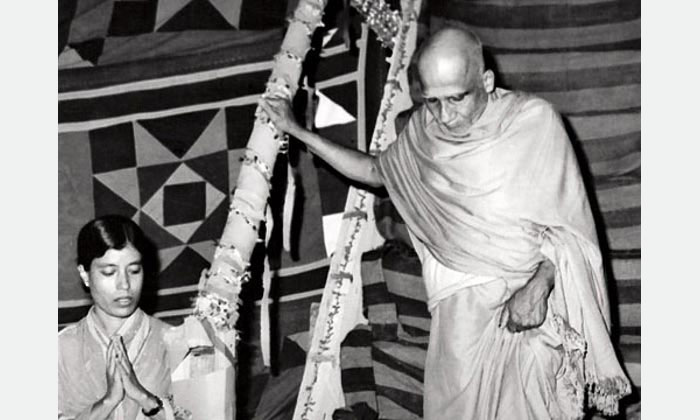The Brihadaranyaka Upanishad -1.16. Swami Krishnananda.
-------------------------------------------
Tuesday,October 13, 2020. 10 : 12.AM.
1.Introduction -16.
-------------------------------------------
1.
Om Santih! Santih! Santih – 'Om! Peace, Peace, Peace'. We always recite this peace chant three times, indicating that there should be peace in the three realms, or in three ways, or freedom from the three sources of trouble. We have three principal kinds of trouble, and all these three are to cease and peace is to prevail. We have trouble from within; trouble from without; and trouble from above. This threefold problem is known as Tapatraya. If there is a heavy flood, or there is an earthquake, a thunderbolt, or a destruction of this kind caused by factors beyond human range, such catastrophe is referred to as supernatural adhidaivika-Tapa. When troubles come from outside, as those from animals, reptiles, wicked persons, etc., they are known as adhibhautika-Tapa. When troubles come from inside, such as illness, sorrow born of mental confusion, and the like, they go by the name, adhyatmika-Tapa. They merely appear to be three, from outside. There is a threefold appearance of a single problem, and it cannot be solved by any amount of intellectual logic, because it is ingrained in the very being of the individual. May the Vidya, the Wisdom of the Upani?had bring peace by causing the cessation of this threefold sorrow. May there be Peace everywhere.
2.
The Upanishad proper begins with the contemplation of the sacrifice, Asvamedha. The Veda, in the hymn called the Puru?ha-Sukta, contemplates the Universe as a vast Sacrifice of God. Creation is an 'othering' or self-alienation of the Absolute, as it were. Here is a symbolic concept of the Original Sacrifice. The Purusha, the Supreme Being, became an 'other' to Himself in the act of the manifestation of the Universe. But, the Supreme was 'as if' an 'other', but not truly, for He, nevertheless remained as the Absolute, Self-Conscious Being, and He knew Himself as 'I-am'. Even in the Biblical parlance we have the description of God as 'I-am-That-I-am'. One cannot say anything else about God. 'I-Am' is the highest description of God, but the Absolute is supposed to be transcendent even to this condition of 'I-amness' of the Universal Nature, because the state of 'I-am' is Self-consciousness, though it is Universal. So, in the phraseology of the Vedanta, a distinction is drawn between this Universal 'I-am' condition and the Absolute as it is, the distinction between Brahman and Ishvara, spoken of in this philosophy.
3.
The Cosmic Sacrifice of the Puru?ha-Sukta is an indication to us of the way in which a ritual can become a spiritual meditation, or a spiritual meditation itself can be interpreted as a magnificent ritual. The Brahmanas of the Veda, ritual-ridden as they have been, are brought to a point of contemplative apotheosis in the Aranyakas and the Upanishads, and here it is that every kind of action is identified with a form of sacrifice, and action made a part of inward contemplation, so that action becomes a process of thought, rather than a movement of the limbs of the body. Every activity is a psychological function; it is not just a physical process. This is what we have to understand when we convert action into a contemplation. The originally Existent Being thought an Idea, a Being inseparable from Consciousness. The Purusha-Sukta tells us that God became all the Cosmos – purusha evedam sarvam, and the created beings contemplated God as the Original Sacrifice. Yajñena yajñam-ayajanta devah – by Sacrifice did the celestials contemplate the Sacrifice. This is, in some way, an anticipation of a subsequent enunciation of a similar process in the Bhagavadgita, when it says that the Absolute is the Supreme Sacrifice, contemplated universally, as also performed individually in the spirit of divine participation. (Brahmarpanam brahma havih, brahmagnau brahmana hutam, brahmaiva tena gantavyam brahmakarma samadhina).
To be continued ...
=============================================================





Comments
Post a Comment